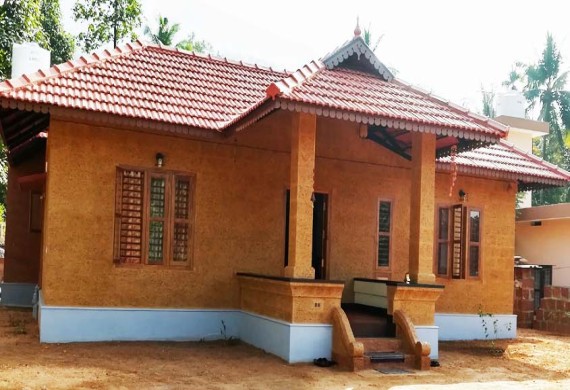
Women Own One-Third of New Homes in Idukki, Thiruvananthapuram
By: WE Staff | Friday, 29 April 2022
When it comes to women's empowerment, it's easier to preach than to do. Two Kerala districts, Thiruvananthapuram and Idukki, have demonstrated that gender equality is manifested more in deeds than in words. According to the most recent data from the government's economics and statistics department, these districts have the highest female representation among new building owners.
Women owned 34.34 percent of new private buildings in Thiruvananthapuram and 34.08 percent in Idukki, according to an analysis of the department's 'Annual Building Statistics' for the five years from 2015-16 to 2019-20. Approximately 80% of the state's new private buildings are residential. Six districts had female representation of more than 30%, compared to the state average of 27.30%.
Kottayam had the lowest representation, with 21.37 percent, followed by Malappuram with 21.79 percent. Female ownership in Idukki has increased significantly over the years, rising from 28.86 percent in 2015-16 to 42.49 percent in 2019-20. Thiruvananthapuram's percentage increased from 35.64 percent to 37.35 percent. In those five years, the state average increased from 27.08 percent in 2015-16 to 29.08 percent in 2019-20. According to the fifth round of the National Family Health Survey, women own a home and/or land (either alone or jointly with others) in 48.3% of the country and 27.3 percent in Kerala.
The Annual Building Statistics, on the other hand, does not include land data. It also lacks a separate category for buildings that are owned jointly. Instead, half of the total number of joint-ownership buildings is added to the men and women categories. In the state, male ownership has always been higher. According to the most recent building statistics report in the series, the female-to-male ownership ratio improved slightly to 1:2.4 from 1:2.7 the previous year.“Nowadays, female ownership is mandatory for applying for the assistance of government housing schemes.
So, this may be an indication of the achievement of the slight progress of gender equality in ownership of buildings being implemented in our state,” the report says.
It was referring to the PMAY, which stipulated that women should be co-owners of property for home loans to economically disadvantaged and low-income groups. Despite the fact that property ownership is a favourable condition for empowerment, experts believe that simply owning a home does not equal empowerment for women.
“Ownership and control are different. We need to know how many of these female owners have actual control over the assets. For that, qualitative ethnographic studies are required,” said J Devika, professor at the Centre for Development Studies. “The growth recorded in Idukki may have different reasons. The additional benefits for female owners for certain loan schemes could be one reason. Also, Idukki is witnessing a considerable increase in the number of young women joining professional courses and securing jobs, especially in the backdrop of the agricultural crisis,” she said.


.jpg)



